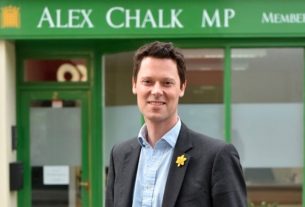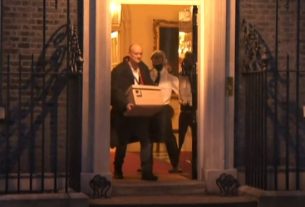A “selectorate” of perhaps just 160,000 Tory members – the actual number is unknown because the party “simply does not know how many members they have”- are receiving their ballot papers for the election of their new party leader and, more importantly, the country’s next prime minister.
The number equates to less than 0.3% of Britain’s adult population and includes non-residents of the UK meaning those who can decide on who the next prime minister will be are not allowed to vote in general elections.
Compounding this “distortion of democracy” is a rule change enabling Tory members who vote early to change their mind, and vote again digitally. Even former leader Sir Iain Duncan Smith has called it “bonkers”.
And despite ballot papers landing on doormats from today – and the ability to vote digitally – the country still won’t find out who the next PM is until September 5.
Foreign secretary Liz Truss is the early frontrunner and apparent darling of the membership while former chancellor Rishi Sunak – the most popular among MPs at parliament – is battling to appeal to the party’s base.
Debates and hustings will continue through August and if the first weeks of the campaign – which is going to last longer than one for a general election – is any indication, the candidates will become even more right wing to win over their very particular voters.
However, and by definition, the consequences will affect the whole country.
Tory members live up to the ‘male, pale, stale and right-wing’ caricature
Most members of UK political parties are middle class, white and older but the Conservative party is the oldest, whitest, most middle class and most male dominated of all mainstream parties.
Research shows they are largely based in London and the south east, according to the Economic and Social Research Council’s Party Members Project which found 56% of members live in that particular corner of England. Only 18% of Tory members live in the Midlands, 20% in the north of England and just 6% in Scotland.
Tory members live up to their “male, pale, stale and rightwing” caricature – 63% are men, 97% are white (compared to 87% of the UK population), 58% are aged over 50 (the UK’s median age is 40) and 40% of members are eligible for their pension. Only 6% of them are aged under 25.
While 40% of Tory members earn more than the average wage, 80% of members are in the highest social economic group, ABC1 – the group defined as having more education and better paid jobs compared to people in other groups.
The demographics of the party membership point to why tax is the big issue in the fight between Sunak and Truss for the top job, and, as importantly, why other policies – including the government’s flagship levelling-up” – are receiving little more than lip service.
Levelling-up appeals to voters in marginal seats, but they, as the ESRC’s research shows, aren’t the ones voting in this election.
Those who are voting, “are older, lean further to the right on social and economic issues, care more about immigration and care less about climate change,” said head of political polling at Opinium, Chris Curtis.
Net zero target is lowest priority for Tories
Truss and Sunak may have mentioned their concerns about the climate emergency but both candidates are well aware that this is not what their party’s members care about. A recent YouGov poll found just 4% of Tory members put the UK’s commitment to hit net zero emissions by 2050 as one of their top three priorities for the next prime minister. In fact, net zero ranked bottom of the 10 policy areas put to them and 37% actually believe their government is “overreacting” with the policies it is pursuing.
For Tory members, winning the next election, cutting taxes, boosting defence spending and the UK’s global standing are the priorities, the pollsters found.
While climate change may not be important to party members, Brexit remains a key issue. In the referendum, 76% of them voted to Leave. Truss, who campaigned for Remain in the referendum, has been championed by the right wing of the party as having the zeal of a convert, proving her credentials by pushing through the Northern Ireland Protocol Bill. No matter the previous promises or the fact the bill breaks international law. It is red meat for Tories and thereby a vote winner, in this election at least.
As too – and as always for this “selectorate” – is immigration. No wonder then that Sunak and Truss both back the Rwanda policy to deport people to east Africa as a means to stop small boats crossing the Channel. Immigration was a key issue in the EU referendum and still ranks as the second most important priority for members, alongside the economy and just behind tackling the decline in living standards in the midst the cost of living crisis.
The rest of the UK may ask, what about the countless crises across society after 12 years of Tory rule? But no matter how loud they’re asked, such questions won’t be heard – never mind answered – by the two candidates who are listening only to the right-wing wants of 0.3% of the population.




